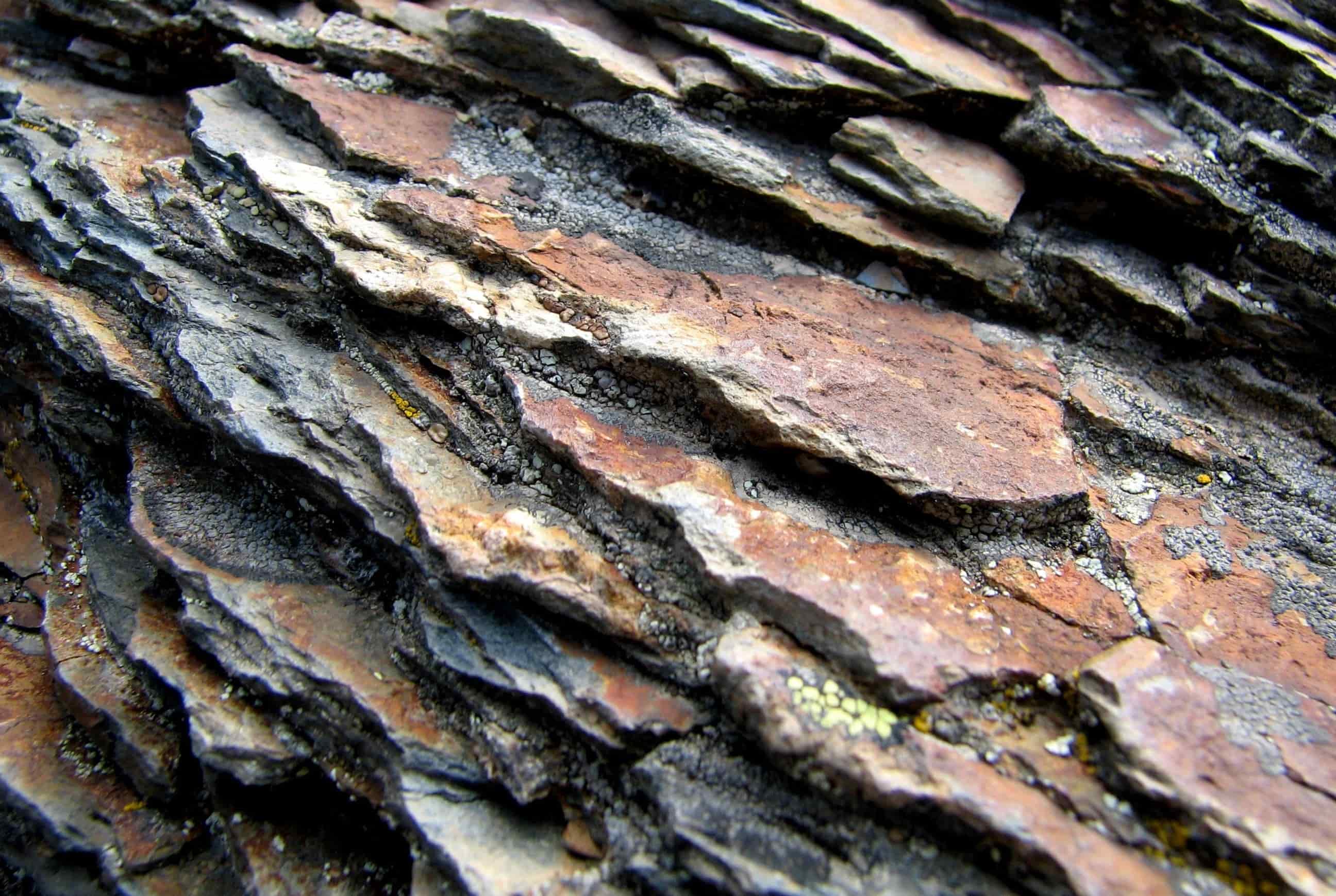
Shale rock, a fascinating geological formation, holds a wealth of secrets within its layers. This fine-grained sedimentary rock, composed of clay minerals and tiny particles of other minerals, has a unique composition that sets it apart from other rock types. Its formation, properties, and significance in various industries make it a subject of great interest for geologists, engineers, and environmentalists alike. In this article, we will delve into the depths of shale rock to uncover 10 intriguing facts that shed light on its importance and impact. From its role in the formation of natural gas and oil to its influence on landscapes and ecosystems, shale rock has a story to tell. Let's embark on a journey to unravel the mysteries of this enigmatic rock and gain a deeper understanding of its place in the natural world.
Key Takeaways:
- Shale rock, formed from mud and clay, holds ancient secrets and influences energy, art, and Earth’s history, but its extraction raises environmental concerns.
- Shale rock’s layers preserve Earth’s past, shape landscapes, and inspire art, while its properties impact soil, agriculture, and scientific research.
Shale Rock: Unveiling Nature's Time Capsule
Shale rock, a fascinating geological wonder, holds a wealth of secrets within its layers. Here are 10 intriguing facts about shale rock that shed light on its significance and impact on the natural world.
Shale Rock: A Versatile Sedimentary Rock
Shale rock, a type of sedimentary rock, is formed from compressed mud and clay. Its fine-grained composition makes it an essential resource for various industries, including energy, construction, and even art.
Shale Rock's Remarkable Formation Process
Shale rock forms through a gradual process involving the accumulation of silt and clay particles at the bottom of ancient bodies of water. Over time, these sediments undergo compaction and cementation, resulting in the creation of shale rock.
Shale Rock's Abundant Resource Potential
Shale rock harbors vast reservoirs of natural gas and oil, making it a crucial resource for energy production. The extraction of these valuable resources from shale rock has revolutionized the global energy landscape.
Shale Rock's Environmental Impact
The extraction of natural gas and oil from shale rock has sparked debates regarding its environmental impact. The process of hydraulic fracturing, or "fracking," has raised concerns about water contamination and seismic activity in regions with extensive shale rock deposits.
Shale Rock's Geological Significance
Shale rock serves as a geological time capsule, preserving a record of ancient environments and ecosystems. Its layers contain valuable insights into Earth's history, offering clues about past climates and the evolution of life on our planet.
Shale Rock's Role in Earth's Evolution
The deposition and formation of shale rock have played a pivotal role in shaping Earth's surface over millions of years. Its presence in sedimentary basins reflects the dynamic interplay of geological processes that have shaped the planet's landscapes.
Shale Rock's Artistic and Decorative Uses
Shale rock's unique texture and color variations make it a sought-after material for artistic and decorative purposes. From sculptures to architectural elements, shale rock adds a touch of natural elegance to various creative endeavors.
Shale Rock's Influence on Soil Composition
Shale rock's weathering and erosion contribute to the formation of clay-rich soils, influencing the fertility and composition of terrestrial landscapes. Its presence in soil profiles impacts agricultural practices and ecosystem dynamics.
Shale Rock's Role in Scientific Research
Shale rock's composition and properties have piqued the interest of scientists and researchers across diverse fields, from geology and paleontology to environmental studies. Its analysis provides valuable data for understanding Earth's past and present conditions.
Shale rock stands as a testament to the enduring forces of nature, encapsulating the legacy of bygone eras and offering valuable insights into the intricate tapestry of our planet's history. Its significance spans geological, environmental, and industrial realms, shaping our understanding of Earth's evolution and the resources it holds. As we continue to unravel the mysteries held within shale rock, we gain a deeper appreciation for the profound impact of this unassuming yet remarkable geological marvel.
Conclusion
Shale rock is a fascinating and versatile natural resource that plays a crucial role in various industries and ecosystems. Its unique composition and properties make it a valuable asset for energy production, construction, and environmental preservation. Understanding the geological significance and practical applications of shale rock is essential for appreciating its impact on our daily lives. As we continue to explore and harness the potential of this remarkable sedimentary rock, it is important to prioritize sustainable practices and environmental stewardship to ensure its long-term benefits for future generations.
FAQs
What are the main uses of shale rock?
Shale rock is utilized in various industries, including energy production, construction, and agriculture. It serves as a source of natural gas, a key component in the manufacturing of bricks and tiles, and a valuable soil amendment for agricultural purposes.
How does shale rock contribute to environmental conservation?
Shale rock plays a vital role in preserving natural habitats and ecosystems. Its impermeable nature helps contain and filter groundwater, preventing contamination and promoting environmental sustainability. Additionally, shale formations provide essential habitats for diverse flora and fauna, contributing to biodiversity conservation.
Was this page helpful?
Our commitment to delivering trustworthy and engaging content is at the heart of what we do. Each fact on our site is contributed by real users like you, bringing a wealth of diverse insights and information. To ensure the highest standards of accuracy and reliability, our dedicated editors meticulously review each submission. This process guarantees that the facts we share are not only fascinating but also credible. Trust in our commitment to quality and authenticity as you explore and learn with us.
